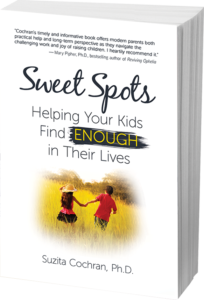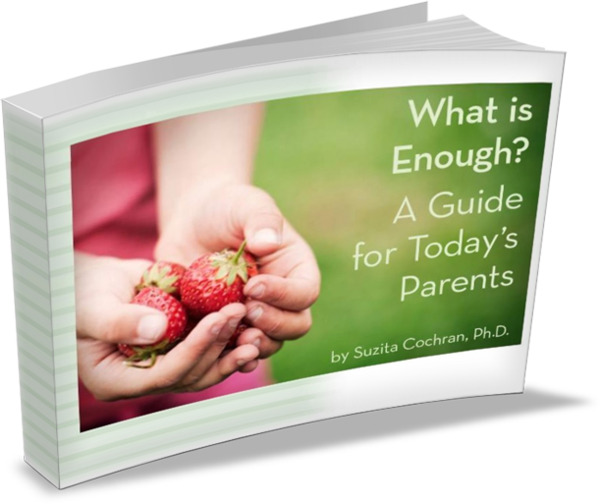 It was clear early on that my friend Christina’s daughter Ava was a bright girl. She was one of those toddlers who spoke in eloquent sentences when my same-age son was struggling to put two words together. Her parents were understandably impressed with her abilities. Unlike other children who develop in fits and starts during their elementary years, Ava was a child to whom all things academic came naturally.
It was clear early on that my friend Christina’s daughter Ava was a bright girl. She was one of those toddlers who spoke in eloquent sentences when my same-age son was struggling to put two words together. Her parents were understandably impressed with her abilities. Unlike other children who develop in fits and starts during their elementary years, Ava was a child to whom all things academic came naturally.
On the other hand, Ava never seemed particularly interested in other children. As soon as she could read, she was usually more focused on our bookshelves than on running around with our kids. Still, the adults in the room took notice of Ava’s ability to read at barely age four. However, I also remember observing that unlike the other kids we saw regularly, Ava never learned my name. She knew me only as Stephen and Daniel’s mother. For such a smart child, this was a bit odd. Ava seemed to see me as a vehicle for getting what she needed. “Hey, can you get me that book?” or “I need some juice.”
I wondered if having a kid like Ava, who was so impressive in her intellectual pursuits, allowed her parents to focus only on what was going well and forget to remind their daughter that other people in her life were a vital source of knowledge and connection for her.
A Problem Arises
Ava’s family moved to Seattle when she was in fifth grade, and since then we have only been in touch sporadically. Christina called me recently, though, to ask my advice on a few things that concerned her. She mentioned that Ava had recently been rude when her grandparents visited. Ava later told Christina that all her grandparents did was ask annoying questions about her life. When I asked how school was, Christina said Ava continues to be a very academic kid, but she no longer enjoys school like she once did. Ava’s a sophomore now and attends one of the best public high schools in her area, but tells her parents that school is boring. She still gets good enough grades, but says most of her teachers are “stupid” and her classes seem pointless.
Wisdom Found
I found some advice for Ava’s parents in an unexpected place. When Christina phoned, I happened to be reading 30 Lessons for Living: Tried and True Advice from the Wisest Americans, by Karl Pillemer. Pillemer and his team interviewed 1000 elders with the average age of 78, though some were over 100. He asked them to share what they had learned over their long lives regarding marriage, work, parenting, aging, and day-to-day living. He then synthesized their interviews into 30 life lessons.
Ava popped into my head when reading the section on work life—even though to my knowledge 15 year-old Ava has never worked for money. Pillemer referred to the elders he interviewed as “experts” and noted that regarding work life the experts repeatedly emphasized:
“No matter how talented you are, no matter how brilliant—you must have interpersonal skills to succeed. Many young people today are so focused on gaining technical expertise that they lose sight of this key to job success: traits like empathy, consideration, listening skills, and the ability to resolve conflict are fundamentals in the workplace.”
This piece of wisdom seemed to be one component of Ava’s problem. She had always been overly focused on her own interests. Her parents had set up a world where for the most part Ava didn’t need to interact with other people much to get what she wanted. Again, with a child like Ava who hadn’t required much parental guidance, I wondered if her parents neglected to notice the areas Ava wasn’t so good at, such as working with others. Over time Ava had built up such confidence in her intellectual abilities that it didn’t occur to her that other kids and adults had much to offer. If her parents had spent more time helping Ava see what skills and lessons other people could teach her, they might have instilled an attitude of respect for the adults in her life such as her teachers. Every child will have a few not-so-great teachers, but it’s hard to believe that Ava’s teachers are all bad and the majority of her classes useless.
Another life lesson from the experts in Pillemer’s book was: Make the most of a bad job. This wisdom might be useful to Ava. An 81 year-old man named Sam Winston summarized this lesson saying,
“I’ve had many different experiences throughout my life where I really didn’t like what I had to do and I would feel what I was doing was inconsequential. But the lessons I learned doing those things played an important part in my life. For example, I had to work my way through college, in many what you may consider meaningless jobs. Later on they were very valuable for me as an employer, to help me understand my people.”
Sam Winston later explained lessons he learned from various people:
“People are very important. I have a saying that ‘There is some good in everyone.’ But there is an important corollary to that. If nothing else, you can always say, ‘There’s a [person I will use as] a bad example.’…You can learn from everyone, no matter who it is. No matter what their status, you can learn from them.”
Challenge This Worldview
Maybe the message Ava’s mom really needed to give her daughter was “you have unique gifts, but so does everyone else.” Perhaps Ava’s parents should remind her that there are many types of intelligence—musical, visual-spatial, verbal, logical, kinesthetic-physical, interpersonal, intrapersonal—to help her understand and respect the variety of strengths those around her may possess. Unfortunately societies which don’t value the wisdom of elders may be more likely to raise children with attitudes like Ava’s. On the other hand, parents can always challenge this attitude in their kids when they see it. I think “the experts” would agree.
Leave a comment below!

 Sweet Spots: Helping Your Kids Find ENOUGH in Their Lives.
Sweet Spots: Helping Your Kids Find ENOUGH in Their Lives.


Based on the little bit of information you provided about Ava’s early history, her mother (and she) may find practical help and support through SENG (Supporting Emotional Needs of the Gifted) and facebook groups like Raising Poppies. Parenting outlier children can be challenging, and finding a tribe of people with similar issues, even if they aren’t local, can really help.
Great points! Thanks so much for your comment.
Great topic. It seems like weekly we are learning how each human can be differently abled. The elder knowledge book sound great. Thanks!
I agree, based on your description, that Ava may have challenges interacting socially with other people. I would like to offer a few other viewpoints that may round out the diagnosis.
Ava’s interaction with her grandparents may a lack of intergenerational communication skills, on both sides. Our western societies have become much more peer group stratified with all generations communicating more with their age cohort than across generations. This can lead to reduced skills in communicating with older or younger individuals. Including less interest and less patience.
The other viewpoint is that Ava sounds like a high gifted individual and may feel isolated among her less academically gifted peers. Moving her to an accelerated program, or advanced studies courses, and waiting for university to put her into a group of smarter, faster, sharper peers may help her enjoy other people.
That said, if her parents are now worried about this, thank goodness that they noticed and may be paying more attention. Strong social networks are shown to positively correlate with success and happiness.